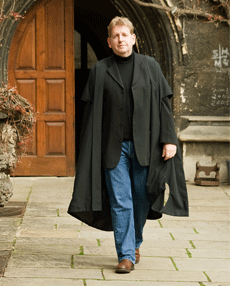Dr Harry Sidebottom is a Fellow of St Benets Hall and lecturer at Lincoln College, Oxford, where he specializes in ancient warfare and classical art. He has an international reputation as a scholar, having published widely on ancient warfare, classical art and the cultural history of the Roman Empire. Harry is also a presenter on Ancient Discoveries for The History Channel and the best-selling fiction author of the Warrior of Rome series. With his first two novels in the Warrior of Rome series (Fire in the East and King of Kings), set in the fragmenting Roman Empire of the later…

